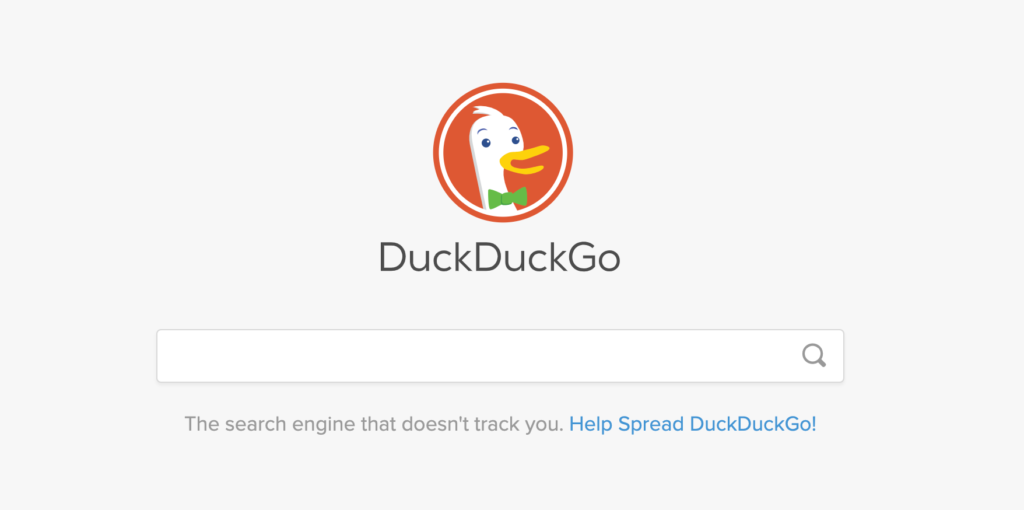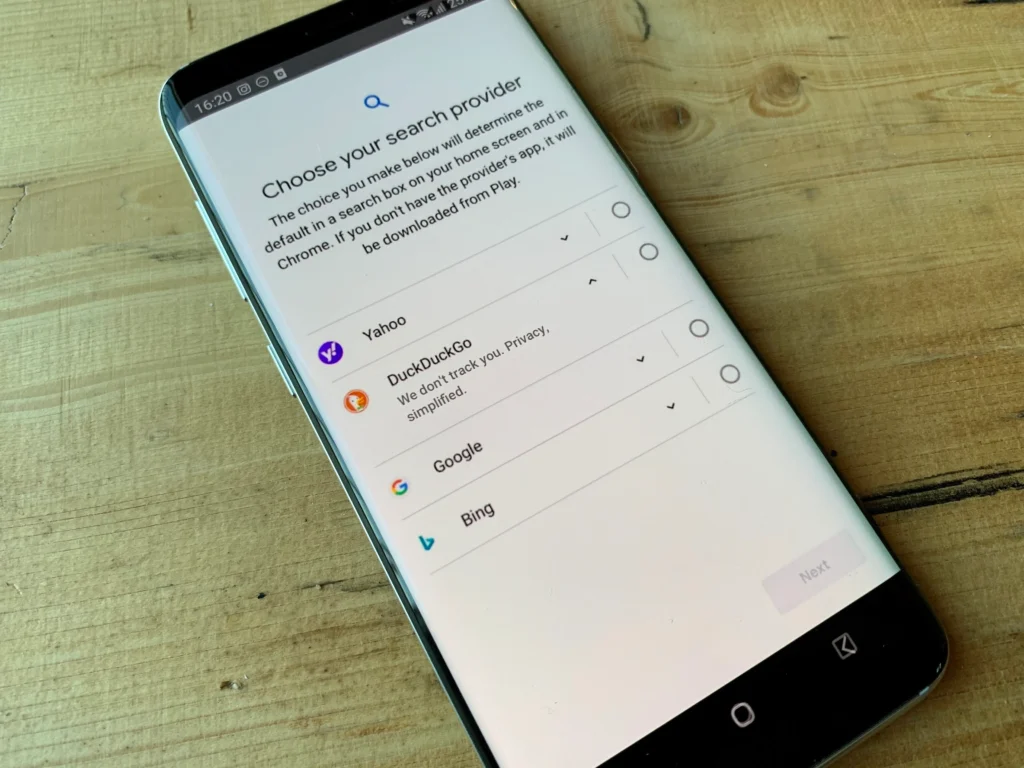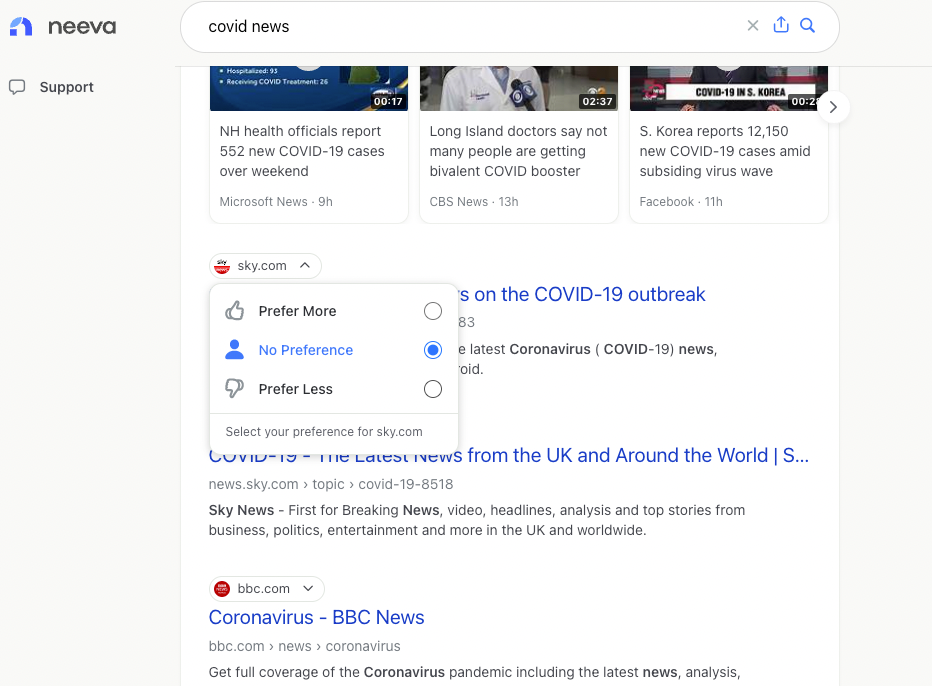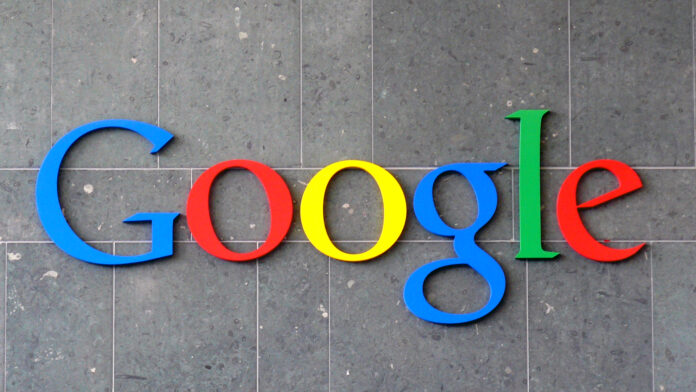La judicial investigation in the case of the US Department of Justice against Google for its alleged monopoly in the search market has revealed some notable data about the state of competition in the search market, including the internal workings, revenues and, in In some cases, the prices of potential Google competitors, such as DuckDuckGo y Neva, the latter sold to Snowflake last year.
The “Fact Findings” presentation provided by Google documents the history of search competition, including Google's beginnings, its innovations, the competitive landscape, Google's search ads business, distribution agreements, and more.
Of particular interest to us were the parts that reference web search startups, such as DuckDuckGo and Neeva, and their business developments.
The presentation reveals some details that we already knew about DuckDuckGo. For example, that it has been profitable since 2014 and that its source of operating income is currently search advertising, i.e. search ads provided by Microsoft in the US. However, Google's proposal also attempts to paint a picture of a startup that did not invest in search innovation, but instead focused on returning investment to its shareholders .
As the filing states, DuckDuckGo raised $10 million in 2018, but “most of that money was distributed to DuckDuckGo shareholders,” rather than being used to improve its search engine. When DuckDuckGo raised funding again in 2020, a $100 million round, a percentage of that amount was returned to shareholders again. (The exact percentage was redacted). When shareholders sold shares to various venture capital firms, those funds were not used to improve the search engine, the document argues. But this also contradicts this point: a third of DuckDuckGo's 50 employees in 2018 were working, for example, to improve the search engine.

Still, the paper notes that despite DuckDuckGo's profitability, it had not created its own "comprehensive web index" for organic search results—hardly a point in Google's favor. Additionally, when Apple was asked if it would consider making DuckDuckGo the default in the Safari browser, Apple Senior Vice President of Services Eddy Cue responded: “No, we didn't… it's not a good option for customers.” .
DuckDuckGo's business scope is also included. The filing notes that the startup estimated that its search engine was being used by 100 million people worldwide as of 2021. The search engine receives only about 2,5% of general search queries in the US. .US, despite estimates that 10% of people in the US claim to be users. This, DuckDuckGo management explained, is due to the fact that people often use their search engine for some, but not all, queries.
In Europe, DuckDuckGo received just 0,6% of search queries on mobile devices, as of August 2023, even after the introduction of Android's “choice screen”, where it is offered as an option. In total, its share of search queries in Europe ranged between 0,5% and 2,5% in 2023, depending on the country.

By presenting these findings, Google hopes to demonstrate that people choose its search engine because it is better and more innovative, not because of its monopolistic share.
He also dismisses DuckDuckGo's approach to privacy as one of its failures, stating that the approach leads to "significant trade-offs for search quality," by not using data such as search sessions, a login experience, and more features. Similar. If anything, though, these details and others included in the presentation show how difficult it is for a competitor to build a search business that rivals Google's.
Another startup that serves as an example of that problem is Neeva, the search engine founded in 2019 by former Google employees Sridhar Ramaswamy and Vivek Raghunathan. Neeva originally seemed promising, not only because of its proposition, but also because of its founding team. CEO Ramaswamy worked at Google from 2003 to 2018 and held senior positions reporting to the CEO and managing Google's advertising, commerce, search infrastructure and privacy teams, the court document recalls.
With the team's deep technical knowledge and experience, they came up with a plan to offer consumers an ad-free alternative to Google by generating revenue through subscriptions. By 2022, Neeva said it had amassed more than 600.000 users, but most were not paying customers at that time.

The court filing offers a few more details about Neeva's progression, highlighting funding from major venture capital firms such as Sequoia Capital and Greylock Ventures, in addition to Ramaswamy's own personal investment. The company believed it could compete successfully in search quality in the U.S. and select other markets with only a 2,5% share of overall queries, Ramaswamy testified during the trial.
The startup began offering results through Microsoft's Bing while developing its own search infrastructure. In 2022, it used its own techniques to rank web results and was believed to be comparable to Google and better than Bing thanks to the use of machine learning, natural language processing and other techniques.
To develop and train its machine learning models, it licensed anonymous information in the form of commercially available data sets. Google couldn't claim that Neeva wasn't innovating at this point. The startup released a feature of generative AI, Neeva AI, last year, which is similar to what Google is now testing with its Generative Search Experience (SGE) in that it also answers some queries directly on search results pages using AI.
As a result, Neeva was able to attract some users. The filing notes that at its peak, it had "several million unique users per month," Ramaswamy said. Unfortunately, its inability to compete with free search ultimately caused the startup to close its consumer business, move into the enterprise business, and eventually be acquired by Snowflake as it was unable to attract the venture capital funding needed to continue expanding. your business.
“Vivek and I reluctantly came to the conclusion that we could not build a business fast enough to continue raising capital to support the growth of the product and the team,” Ramaswamy testified. “So earlier this year [2023], in May, we entered into talks about potential acquisitions in March, but earlier this year, we shut down the consumer search engine, refunded the money customers had paid us, and were acquired.” by Snowflake, which is a data company,” he said.
Neeva was generating less than $1 million in subscription revenue at the time and was growing, but was still a small part of the search market, the document also states.
The startup passed on Snowflake for approximately $184,4 million in cash, more than double the amount that had been invested, according to the filing. This figure is slightly higher than previous reports that had put the figure at 150 million.
Although not a startup, the document also addresses the loss of Yahoo's search business, noting that it stopped crawling the web after a 2009 deal with Microsoft for algorithmic search and paid search ads. This partnership allowed Yahoo to reduce its investment in search and focus on other more popular products, such as Yahoo Finance, Yahoo Sports, Yahoo News and Yahoo Mail. He adds that Mozilla also had an agreement with Yahoo, but abandoned it due to the quality of the search.
With few viable competitors in the search market, Google tries to argue that it competes with other products, such as dedicated mobile applications and websites that offer some specialized type of search, such as Yelp, Airbnb, Amazon, Expedia, Booking.com, Hotels.com and others. It also aims to compete with AI, such as ChatGPT, and social networks, such as Facebook, Instagram, Pinterest and TikTok, the latter three, especially among younger users.
For example, Google vice president of search Liz Reid said in 2021 that “63% of daily TikTok users ages 18 to 24 reported that they use TikTok as a search engine.”
It remains to be seen whether or not the court will be swayed by Google's argument that it is not a monopoly on search and, more broadly, search advertising, which is a big part of this case. Google is clearly the winner in the search market, but it's not for a lack of competitors trying to get in, as these examples show. However, the trial had already revealed that Google used its significant resources to maintain its position in the search market, for example, paying Apple $18.000 billion to make it the default search on iPhones. Meanwhile, Apple considered buying Bing from Microsoft in 2020 and also considered making DuckDuckGo the default engine in Safari before rejecting the idea of continuing to get paid from Google.




